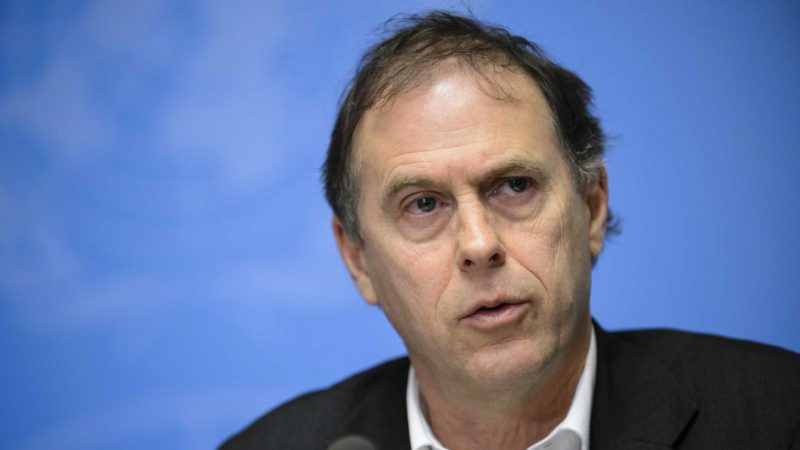- The Morrison government is under pressure to reverse its travel ban from India as the United Nations Human Rights Committee flags concerns about the move
- Committee spokesperson Rupert Colville said the UN has “serious concerns” about the travel ban and the massive penalties in place for those who breach it
- Last week, Health Minister Greg Hunt imposed the ban, with fines of up to $66,000 and five years’ jail time for those who break the rules
- Today, the U.N. “few, if any” circumstances that justify a country banning its own citizens from coming home
- The Federal Government has since downplayed the seriousness of the penalties and said it’s unlikely they would be imposed on someone who broke the rules
- Still, Executive Director of the Human Rights Law Centre Hugh de Kretser criticised the move to introduce the penalties at all
- The comments come ahead of a national security committee of cabinet on Thursday to review the travel ban
- As it stands, flights are set to resume from India on May 15 when the biosecurity determination put in place by the Federal Health Minister expires
The Morrison government is under pressure to reverse its travel ban from India as the United Nations Human Rights Committee flags concerns about the move.
Committee spokesperson Rupert Colville said the UN has “serious concerns” about the ban that keeps Australia’s own citizens from returning home from India.
Health Minister Greg Hunt enacted the Biosecurity Act last week to ban all flights to Australia from India, with fines of up to $66,000 and five years in prison on the line for anyone who breaches the travel ban.
Today, Rupert Colville said the committee generally saw “few, if any” circumstances that justify a country banning its own citizens from coming home.
“We have serious concerns about whether the biosecurity determination — and the severe penalties which can be imposed for its breach — meets Australia’s human rights obligations,” Rupert told 9News in a statement.
“The UN Human Rights Committee, which oversees implementation of the ICCPR (International Covenant on Civil and Political Rights), has emphasised the narrow authority to refuse nationals’ return, and considers that there are few, if any, circumstances in which deprivation of the right to enter one’s own country could be reasonable,” he said.
The ICCPR is a multilateral human rights treaty signed by Australia and other UN members in 1980.
There are currently around 9000 Australians registered in India as COVID-19 sweeps through the nation at a rate not seen before by any country. Of those 9000 Australians, 650 are listed as vulnerable.
Downplaying the penalties
Since the travel ban was imposed, Prime Minister Scott Morrison has defended the move but downplayed the seriousness of breaking the rules.
He said the likelihood of the massive fine and jail time being imposed was “pretty much zero”, suggesting they are more a formality than anything.
Nevertheless, Executive Director of the Human Rights Law Centre Hugh de Kretser criticised the move to introduce the penalties at all.
“Instead of threatening Australians with jail if they return home, the Morrison Government should be helping them,” Hugh said.
“This includes ensuring access to flights and to safe and effective quarantine systems,” he said.
“The Australian Government has created an unfair system for Australians overseas trying to get home. On the one hand, business people, celebrities, sportspeople and the rich can travel here, while ordinary Australians face huge barriers.”
The comments come as the government’s national security committee of cabinet prepares to meet on Thursday this week to review the ban and subsequent penalties of those who manage to find their way home from India.
As it stands, flights are set to resume from India on May 15 when the biosecurity determination put in place by the Federal Health Minister expires. The government has not indicated plans to lift the ban before then.

